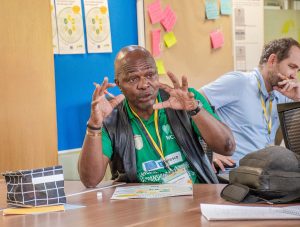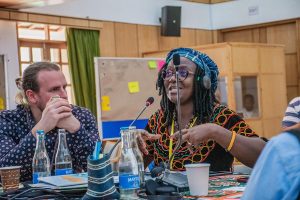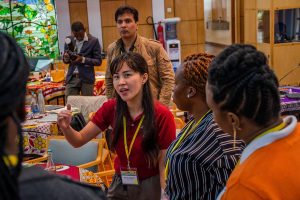


In an effort to generate lessons learnt that are not evident when analyzing single projects, we are undertaking a structured analysis of patterns of performance in ILM implementation across the Landscapes For Our Future initiatives. This analysis will highlight determinants of capacity to implement ILM along project cycles, providing valuable insights to practitioners, policymakers researchers and donors wanting to design and implement ILM interventions.
🫵 That’s where YOU come in. The question of what makes Integrated Landscape Management work is one we can all only answer together. Read on or watch the video below to find out how you can be involved. And then get started by filling out our survey below. (Multiple choice style, so this should not take excessive time.)
Get started now
Please download a preview of the questions so that you and your team can prepare your answers. Then go ahead and fill in our online survey. (Note: Do not close your survey browser window until all answers are submitted, as they will be lost.)
About our lesson learning process & your role
| Steps | What? | How and why? | When? |
|---|---|---|---|
| 1 | Understand the context of implementation of the LFF project/initiative | Online survey by project team members that captures landscape context and project genesis. This will help contextualize results from subsequent activities and establish some causal relationships between context, projects and ILM. | November 2024 |
| 2 | Participatory evaluation of performance in ILM implementation | A few team members per project will appraise their own project based on the 6 ILM dimensions using a 5-point scale. This is ideally done in person at regional workshops, though can be done virtually. Some of the dimensions might be deepened through in-country visits by the LFF Central Component team. | Late 2024 to early 2025 |
| 3 | Sense-making and determinants | Hold a workshop with a diversity of team members to report back on the survey and participatory evaluation results, receive inputs on this, and then discuss challenges and successes teams faced in relation to activities consistent with the 6 ILM dimensions and their determinants. | In person during in-country visits in 2025, or virtually in 2025 Q1 where visits will not be possible |
| 4 | Learning from select stakeholders | Further engagement with select stakeholders participating in LFF projects (e.g. local CSOs, government and community representatives) ideally in person, or through a virtual meeting | In person during in-country visits in 2025, or virtually in 2025 Q1 where visits will not be possible |
| 5 | Final wrap-up and sharing | The syntheses of the general patterns and explanations will be shared with the country teams via a participatory webinar | 2025 |
In the video below, Valentina Robiglio explains the process in more detail:
Expected results
The purpose of this entire process is to generate lessons that will yield the following results:
Outcomes
- Policymakers are enabled to address barriers to scaling and replicating landscape approaches
- The donor community is supported in designing and funding projects that are more likely to be transformational and durable
- ILM practitioners are able to implement and design more impactful and sustainable ILM initiatives
Outputs
- 22 policy briefs: one per LFF country
- one donor advisory report
- two in-depth case studies, each showcasing one successful LFF project (Any volunteers?)
- one guideline for practitioners about designing and implementing ILM projects
- two academic journal papers synthesizing results of the programme and evaluating determinants of ILM success
Please note
- Results will be confidential and not shared with the EC or others without explicit permission. Results will be synthesized across projects and presented in an aggregate manner, safeguarding anonymity.
- We invite you to contribute to these knowledge products as a credited co-author. We will send around a signup sheet for those interested in contributing to any of these knowledge products. All are welcome. Your contributions will only make these products better.



